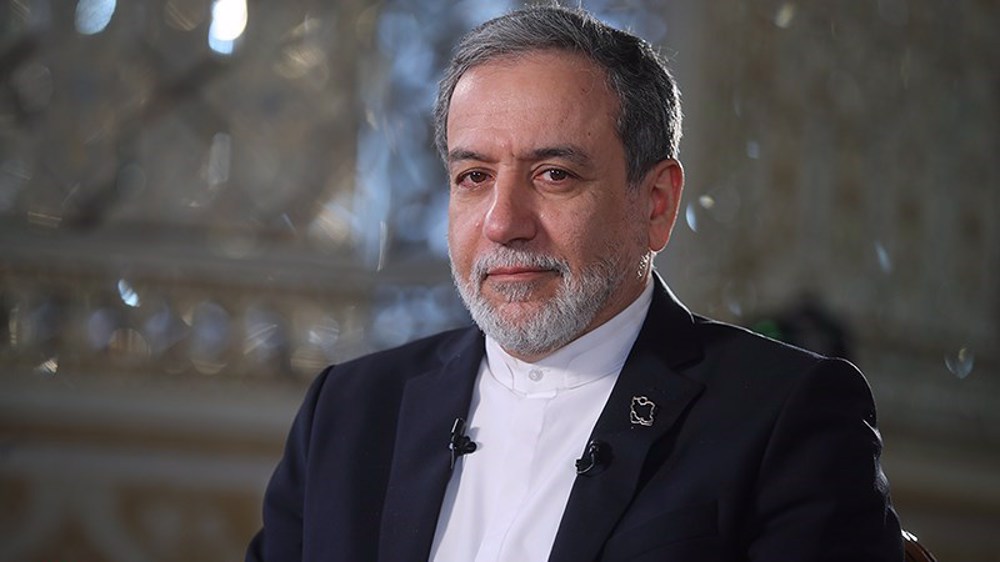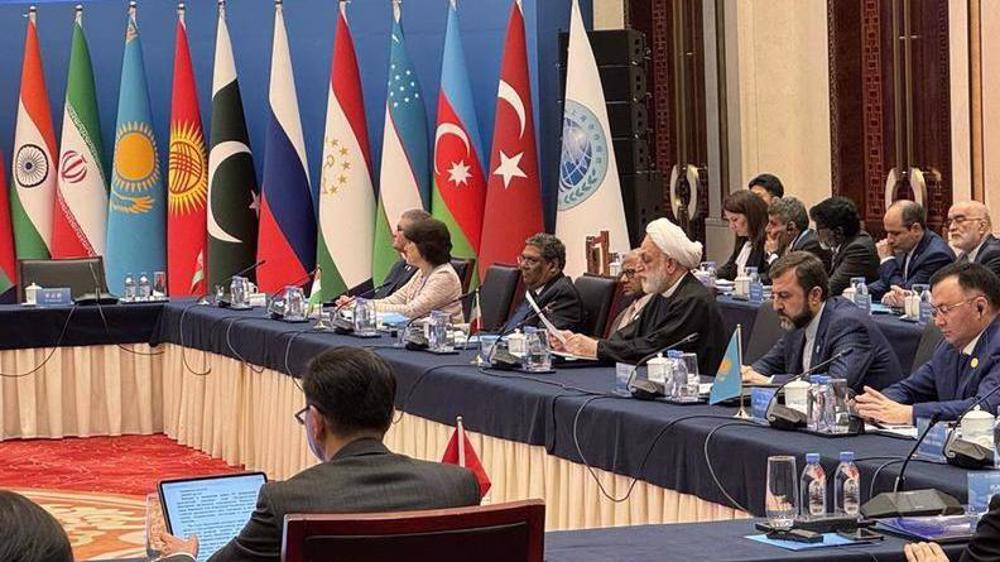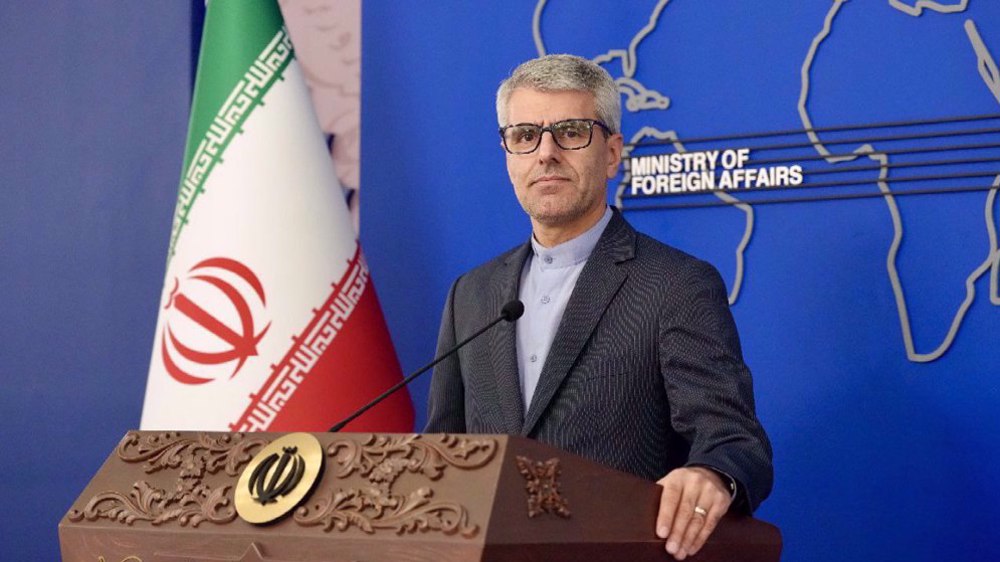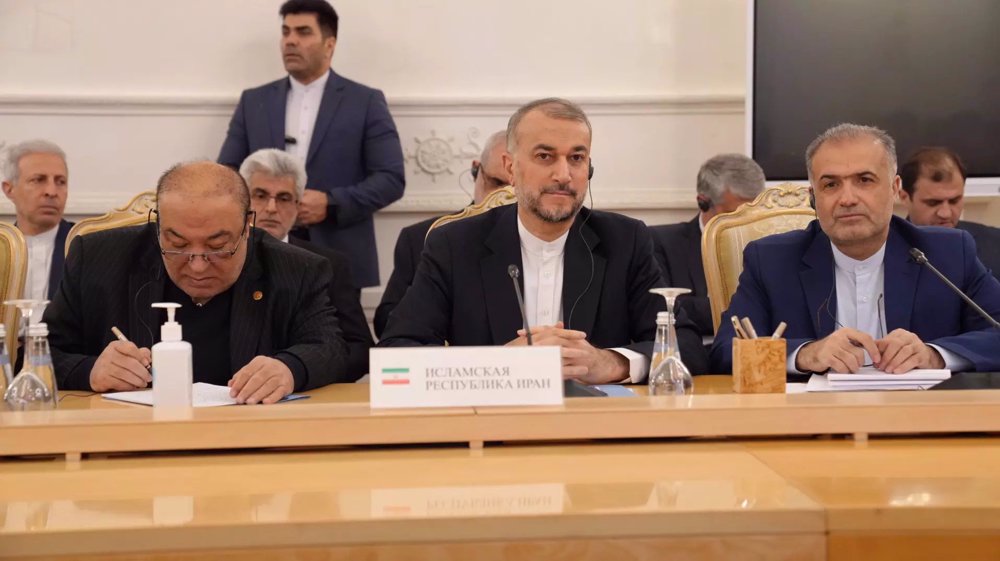Caspian summit: Iran FM calls on international organizations to bring Israel to justice for Gaza genocide
Iranian Foreign Minister Hossein Amir-Abdollahian has called for an urgent halt to Israel’s ongoing aggression on the Gaza Strip, demanding active role by international organizations to bring the occupying regime to justice for its genocidal war on the besieged territory.
Amir-Abdollahian made the call during the 12th annual summit of foreign ministers of the five Caspian Sea littoral states, Caspian Five, which is hosted by Russia, in the country’s capital of Moscow on Tuesday.
“The Zionist regime’s war criminals must be punished in the international court,” Amir-Abdollahian said as he pointed to the more than 16,000 innocent Palestinians, including women and children, killed by the Israeli regime in Gaza since the start of Operation al-Aqsa Storm in early October.
Calling for international pressure on Israel to lift the blockade on the Strip, the top Iranian diplomat said, “Stop the export of goods to the occupied Palestinian territories and boycott the goods made in Israel; this is the least [we can do] to show our sympathy for the people of Gaza.”
Amir-Abdollahian also said the Islamic Republic recognizes the right of the Palestinian people to resist the Israeli occupation within the framework of international law and United Nations resolutions, underlining the necessity of restoring their right to self-determination as well as the formation of the Palestinian State with al-Quds as its capital and the return of Palestinian refugees to their homeland.
Israel launched the war on Gaza on October 7 after the Palestinian resistance movement Hamas waged the surprise Operation Al-Aqsa Storm against the occupying entity in response to the Israeli regime’s decades-long campaign of bloodletting and devastation against Palestinians.
Nearly 16,000 Palestinians, most of them women and children, have been killed in the Israeli strikes.
Tel Aviv has also imposed a “complete siege” on Gaza, cutting off fuel, electricity, food, and water to the more than two million Palestinians living there.
'Caspian Sea should be a real symbol of friendship'
Speaking at the summit in Moscow, Iran’s foreign minister called for more maritime cooperation between the five countries bordering the Caspian Sea while stressing the significance of security and stability in the region.
Amir-Abdollahian said all decisions regarding the issues on the Caspian Sea must be made with the “consensus and agreement” of the five littoral states of Iran, Russia, Azerbaijan, Kazakhstan and Turkmenistan.
“To make the Caspian Sea a real symbol of friendship, progress and development, we need to strengthen collective interaction and cooperation as much as possible,” he added.
Amir-Abdollahian also touched upon environmental challenges facing the Caspian Sea and its littoral states such as the alarming decrease in its water level.
Stressing the need to preserve the environment and resources of the Caspian Sea for future generations, the top Iranian diplomat added, “The Caspian Sea is considered a strategic region due to the fact that it is the connecting link of the North-South and East-West corridors.”
Amir-Abdollahian said security in the Caspian Sea is a collective interest of all coastal countries, saying they shoulder the responsibility to maintain stability, security and sustainable development in the strategic sea.
Read more:
Formation of a secretariat
The Iranian foreign minister also called for the establishment of a secretariat or an organization that can manage and monitor various fields of cooperation among the Caspian Five member states.
“The Islamic Republic of Iran welcomes the development of a blue economy and joint investment in the fields of maritime transport, ports, fisheries, maritime tourism, the creation of free-trade zones and reasonable and sustainable exploitation of the living resources of the Caspian Sea,” Amir-Abdollahian underlined.
Iran's foreign minister departed Tehran for Moscow on Monday to participate in the Caspian Five summit, which focuses on the important issues related to the Caspian Sea, such as security, trade, energy, environment and legal issues.
Over the past decade, Iran has attached high priority to the consolidation of relations with neighboring countries in the region, clinching landmark agreements and entering international economic coalitions as part of the Islamic Republic's policy of confronting Western unilateralism.

Iran’s FM warns of Israeli attempts to derail diplomacy through various tactics

Iran unveils legal strategies for SCO states to counter challenges

Iran: New sanctions show US 'lack of goodwill' in talks with Tehran
Over 100 rabbis, cantors slam Trump for pro-Palestine campus crackdown
Nearly 30 Palestinians killed in fresh Israeli strikes on Gaza
VIDEO | Press TV's news headlines
FBI, local police raid homes of pro-Palestine activists in Michigan
Trump ratings low amid US economic turmoil
VIDEO | Trump tariffs: A wrecking ball!
Israel deprives Gazans of basic needs for ‘survival’: UN
South Africa has no choice but to support resistance against Israel's genocide in Gaza







 This makes it easy to access the Press TV website
This makes it easy to access the Press TV website